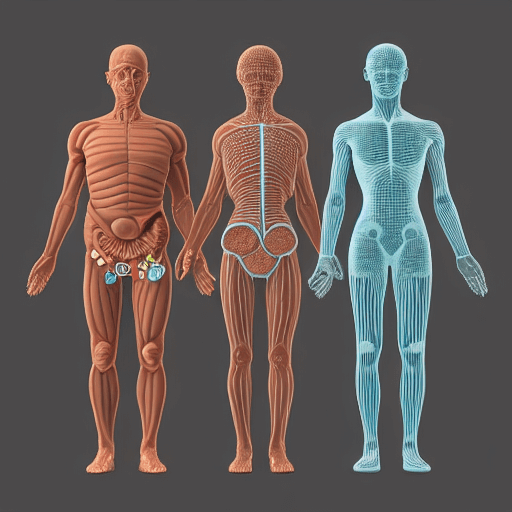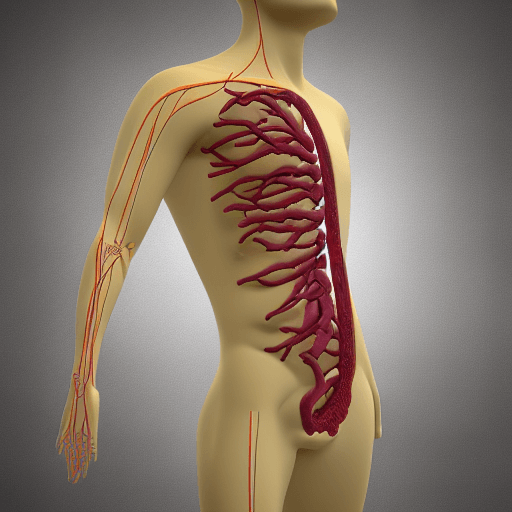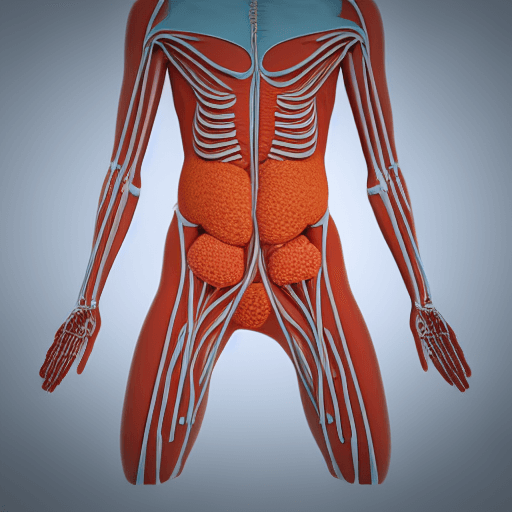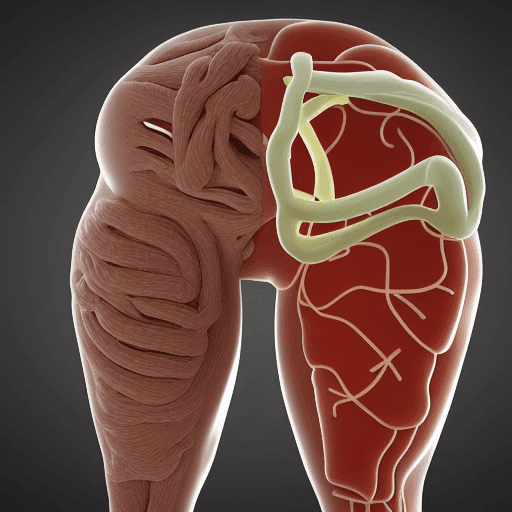How are fats digested in our body?
We’re going to discuss how fats are digested in our bodies and dispel some of the myths that have been circulating for years.
Fats can be confusing, and there is a lot of misinformation out there about them.
We will also provide some tips on how to improve your digestion of fats.

Fats are digested in our body by pancreatic lipase, a digestive enzyme that is secreted by the pancreas.
The lipase breaks the triglycerides down into fatty acids and glycerol.
The fatty acids are then transported into the cells of the body, where they are used for energy or stored as fat.
The glycerol is absorbed into the bloodstream and used to make new glucose molecules, which can be used for energy by the body.
How are fats digested in our body?
Fats are mostly digested in the small intestine by enzymes called lipases.
These enzymes break down the fats into glycerol and fatty acids, which can be absorbed into the blood and used for energy.
Fats are an essential part of our diet and provide many important health benefits, including insulation, energy storage, and vitamin absorption.
However, too much fat can lead to weight gain and other health problems. For this reason, it’s important to eat a balanced diet that includes healthy fats in moderation.
Where does fat digestion begin?
Fat digestion begins in the mouth with the help of saliva.

- Saliva contains enzymes that begin to break down fats, making them easier to digest.
- The process of fat digestion then continues in the stomach, where more enzymes are secreted to help break down the fats.
- The process is completed in the small intestine, where absorption of the nutrients from the fats takes place.
Fat digestion is a complex process that requires the help of various organs and enzymes.
Without these, we would not be able to properly digest and absorb the nutrients from fats.
Can you speed up fat digestion in our bodies?
Some people might think that they can speed up fat digestion in their bodies by taking a pill or drinking tea, but there is no evidence that these methods are effective.

- In fact, the only way to really speed up fat digestion is to exercise regularly and eat a healthy diet.
- Exercise helps to increase the rate at which our bodies burn calories, and a healthy diet provides the nutrients needed to function properly.
- Fat digestion is a slow process, so there is no way to shortcut it.
However, by making simple lifestyle changes, we can help our bodies digest fat more effectively.
Steps of fat digestion and absorption
The process of fat digestion and absorption is a complex one that involves several different steps.

First, the food that you eat is broken down in the stomach by enzymes known as lipases.
These enzymes help to break the bonds between triglycerides, which are the main type of fat found in food.
Once the triglycerides have been broken down, they can be absorbed by the intestines.
In order for this to happen, bile acids are secreted by the liver, which helps to emulsify the fats and make them easier to absorb.
Once the fat has been emulsified, it can be transported through the lymphatic system and eventually stored in adipose tissue.
The entire process of fat digestion and absorption is essential for maintaining a healthy body weight. Without it, we would not be able to properly utilize the nutrients in our food.
What breaks down fat in the body?
The human body is able to break down fat through a process called lipolysis.
This process occurs when the body releases enzymes that break down triglycerides into free fatty acids and glycerol.
The free fatty acids are then able to enter the cells, where they can be used for energy.
In order for lipolysis to occur, the body needs to have sufficient levels of insulin. If insulin levels are too low, the body will not be able to break down fat efficiently.
Additionally, exercise can help to stimulate lipolysis.
When the body is active, it releases more enzymes that help to break down fat. As a result, exercise can be an effective way to help the body burn off excess fat.
What are the products of fat digestion?
The products of fat digestion are fatty acids and glycerol.
Fatty acids are broken down into individual molecules of fatty acids and glycerol.
Glycerol is a component of triglycerides, which are the main type of fat in the diet. Triglycerides are made up of three fatty acids attached to a glycerol backbone.
When triglycerides are digested, the fatty acids are separated from the glycerol and absorbed into the bloodstream.
The glycerol is either used for energy or stored as body fat. Fatty acids can be used for energy or stored as body fat.
Tips on how to improve your digestion of fats
There are a few tips that can help you digest fats more effectively.
Firstly, make sure that you’re consuming enough water. This will help to thin out the bile in your stomach, which will make it easier for your body to break down fats.
Secondly, eat slowly and chew your food thoroughly.
This will give your digestive system more time to work effectively and prevent indigestion.
Finally, include plenty of high-fiber foods in your diets, such as fruits, vegetables, and whole grains.
These foods will help to move fat through your system more quickly and prevent constipation.
By following these tips, you can improve your digestion of fats and ensure that your body gets the nutrients it needs.
The risks associated with poor digestion of fats
Poor digestion of fats can lead to a number of risks, including indigestion, heartburn, and constipation.
In addition, undigested fats can lead to the formation of gallstones.
While most people can digest fats without any adverse effects, those with certain medical conditions may be more susceptible to the risks associated with poor digestion of fats.
For example, people with gastroesophageal reflux disease (GERD) or irritable bowel syndrome (IBS) may be more likely to experience indigestion after eating fatty foods.
However, avoiding fats altogether is not necessary; instead, it is important to choose healthy fats and eat them in moderation.
Including fats from fish, nuts, and olive oil in your diet can help you get the nutrients you need while minimizing your risk for indigestion and other digestive problems.
With a healthy diet and plenty of exercise, our bodies are able to efficiently digest and use fats for energy.
Article Sources
Jacks of Science sources the most authoritative, trustworthy, and highly recognized institutions for our article research. Learn more about our Editorial Teams process and diligence in verifying the accuracy of every article we publish.
